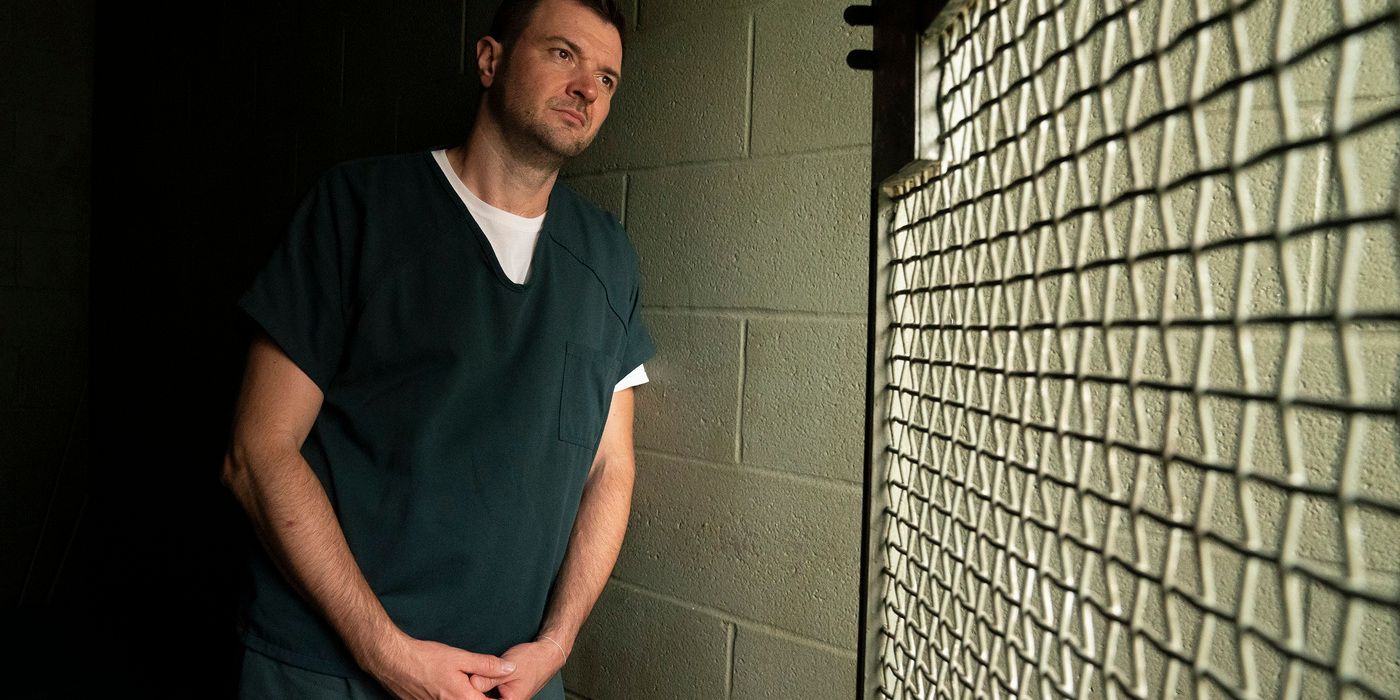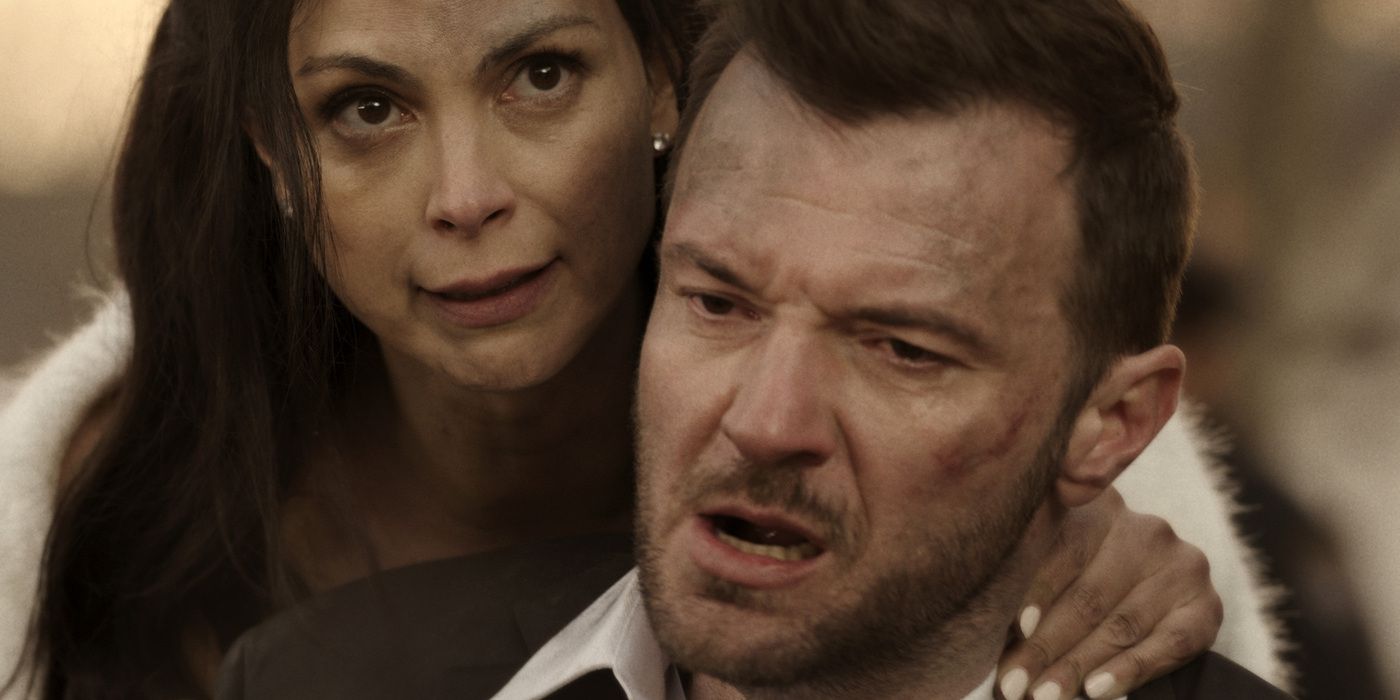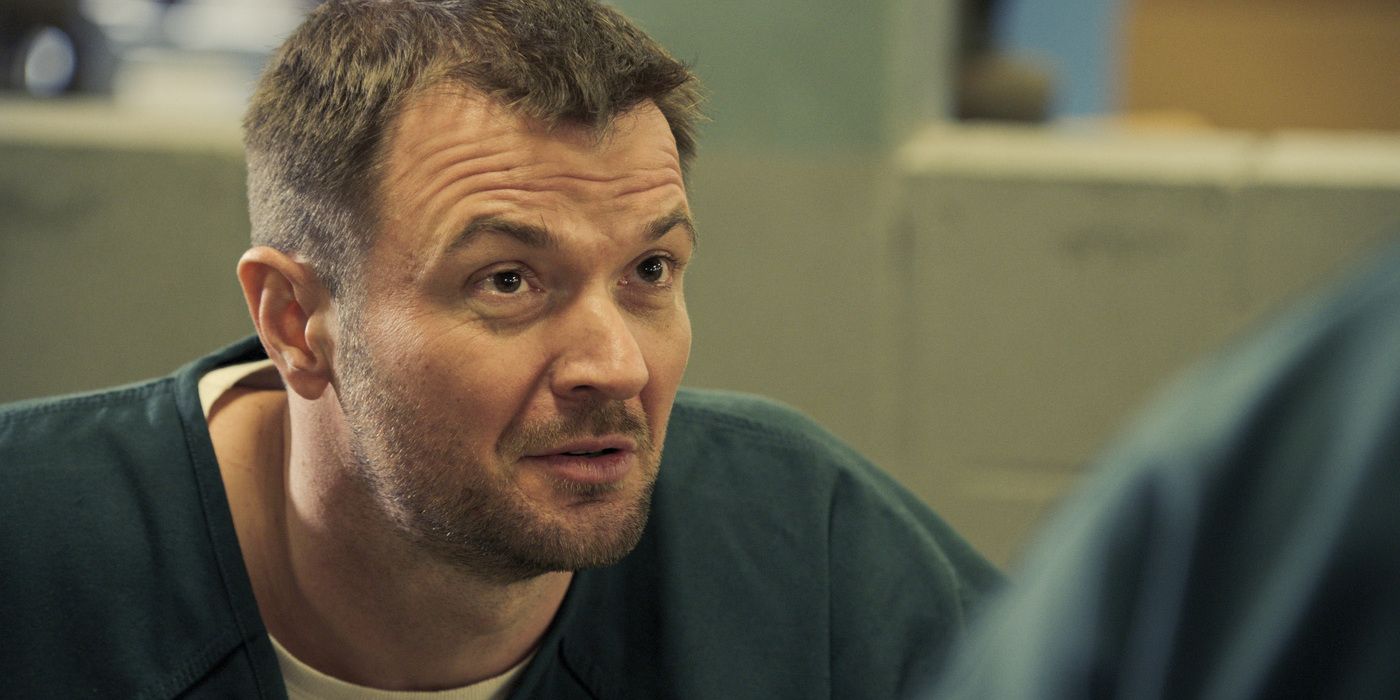WARNING: The following contains spoilers for the latest episode of The Endgame, “Fairytale Wedding,” which debuted Monday, Feb. 28 on NBC.
The big surprise in NBC's The Endgame was Elena Federova's husband Sergey Vodianov -- not just that he was still alive, but that he was portrayed by Costa Ronin. Anyone who's watched TV in the last decade should recognize him, because he's developed a reputation for playing a certain type of antagonist. From his breakout role as Oleg Burov on FX's The Americans to two seasons playing Yevgeny Gromov in Showtime's Homeland and even his guest spot in the finale of TNT's Agent X, he's the foreign agent who disrupts everything. And through his body of work, he's changed what audiences think about that "other."
The foreign agent is a prototypical bad guy seen in everything from TV shows to the plethora of James Bond films, because having the villain literally be on the other side of a border from the hero represents how the two are also apart ideologically. The Americans was a great example of how to properly write those characters, because it cast the foreign agents as the heroes in the story. The introduction of Ronin's Oleg Burov in Season 2 disrupted the series in a wonderful way -- and that's something the actor has carried through since, including into The Endgame, where he's made an impact on the story despite most of his action coming through flashbacks (so far).
The show's second episode "Fairytale Wedding" didn't explain how Sergey's death was faked, but it revealed that his family was a notorious European crime family -- and that everyone else was wiped out in an orchestrated attack on his wedding day. Flashback Sergey was last seen refusing to leave his dead mother until Elena reminded him that to get revenge on her killer(s), he'd have to still be alive. That immediately humanized the character; he'd obviously been involved in a life of crime before that point, but after it, what choice did he have? Or even want to have?
That turn is somewhat similar to Oleg's character arc in The Americans. He was originally positioned as a rival to FBI agent Stan Beeman, as both Stan and Oleg loved the same woman (in the most potentially deadly love triangle until Euphoria). However, Oleg was quickly fleshed out beyond that. Audiences came to understand that he wasn't a typical Soviet agent; he was usually the most level-headed and thoughtful person in the embassy. The last two seasons even flipped his initial dynamic on its head -- after Oleg returned to Russia in Season 5, Stan actually worked with him, trying to keep him out of the clutches of the CIA. He ended the series as a tragic hero, having helped save his country from a planned coup, but in the clutches of the FBI.
While The Endgame's Sergey isn't going to try to live a normal life the way Oleg attempted, the two share that very human outlook. They're not single-minded antagonists out for themselves; they have their own moral codes, and what drives them is more personal than self-serving or ideological. They're doing what they do because they care about someone -- even if what they're doing is wrong.
Things were much more black and white in Homeland, because Ronin's character Yevgeny Gromov was a clear antagonist. He was introduced in Season 7 as the newest adversary for Carrie Mathison, and that season ended with him capturing her and keeping her captive for several months. The next -- and final -- season saw the duo become allies, but only to avert nuclear war; the series finale revealed that Carrie's new relationship with Yevgeny was at least partially so she could become the CIA's new Russian asset. The two did plenty of damage to each other, even when they were supposed to be helping each other.
That's the ruthless side that The Endgame is also going to benefit from. Every TV series positions their major villain as "the best" somehow, but the audience has to believe their reputation by seeing it on screen. Homeland gave Ronin plenty of opportunities to show that he was a real threat, and he played those moments perfectly; he wasn't overdramatic and he didn't need to prove how lethal he was. He was menacing because he was competent and smart. Sergey and Elena were involved in some huge things -- in The Endgame's first episode, Val tells a story about how Elena liberated an entire village -- so Sergey has to be just as smart and unflinching as Yevgeny.
That doesn't keep him from being a human being. Costa Ronin is giving Sergey a full characterization; he's a serious antagonist for Val and her team, but he also feels like a real person and has genuine aspirations, even if they're just for his relationship with the Killing Eve-esque Elena. He even has a sense of humor. Sergey's made The Endgame more legitimate, because the scariest opposition isn't the biggest or the baddest; it's the opponent that audiences can understand and empathize with. Ronin has shown that bad guys can be fully realized people, and there's no reason they shouldn't be as fascinating as the good guys.



